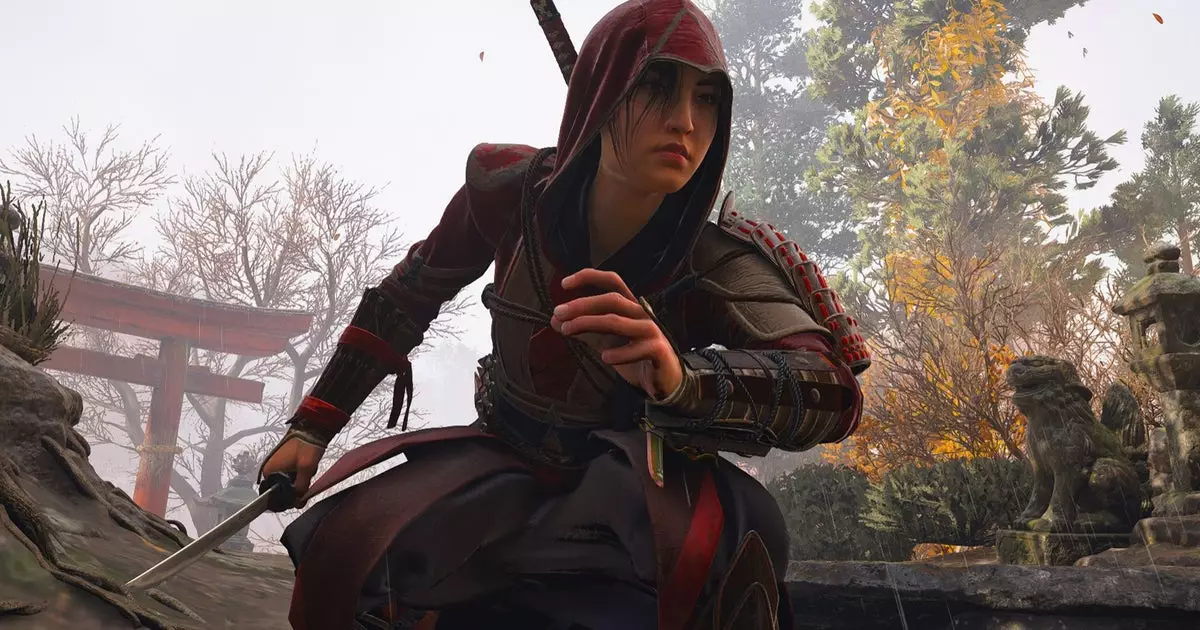Ubisoft, synonymous with blockbuster franchises and innovative gaming experiences, is facing headwinds unlike any its leadership has encountered in years. The latest revelation from CEO Yves Guillemot suggests that the company is hitting the brakes on multiple high-profile projects following the recently released Assassin’s Creed Shadows. Guillemot’s assertion that this title “has reaffirmed the power of the Assassin’s Creed brand” speaks volumes; it indicates a determined pivot towards leveraging the nostalgia and success of their flagship series as a stabilizing strategy during uncertain times.
In an era where new titles flood the market almost weekly, competition among gaming studios has intensified dramatically. Ubisoft’s recognition of this “challenging year,” as framed by Guillemot, suggests not just an acknowledgment of external pressures, but a critical look inward at the brand’s long-term viability. As they prepare to trim their operational expenses by at least €100 million, the question arises: is this an essential recalibration for survival, or merely a reflection of stagnant creative outputs?
Cost-Cutting and Restructuring: A Necessary Evil?
The decision to reduce headcount by approximately 3,000 employees since late 2022 illustrates a grim necessity in the face of diminished earnings—a common story in the fluctuating landscape of game publishing. Guillemot’s language regarding “discipline” is laced with irony; the industry’s ongoing struggle has often seen creativity sacrificed at the altar of financial prudence. This phenomenon raises ethical questions about where to draw the line when balancing artistic integrity with fiscal responsibility.
Furthermore, significant layoffs pose a threat to the company’s innovation pipeline. A leaner organization risks losing not only jobs but also the diverse voices that can drive creativity in projects, crucial to revitalizing franchises typically defined by their epic narratives and expansive worlds. While Ubisoft emphasizes a commitment to efficiency, maintaining the soul of game development during such restructuring will require strategic foresight.
Delays: The New Quality Assurance?
In an intriguing withhold of information during the earnings call, Ubisoft seems to be carving out a path of delayed releases for its flagship games, including a slippage of Assassin’s Creed Shadows. Guillemot’s praise for the game’s successful launch signals that patience is not only a virtue in game development but perhaps a necessary requirement to prevent negative receptions like those experienced by other franchises in recent history. The intention to ensure “best conditions for success” certainly reflects a strategic shift towards quality over speed—an encouraging sign for gamers weary of half-baked launches.
However, this tactic brings its own challenges; the wait for authentic, well-rounded gaming experiences can be perplexing for fans hungry for more content. As this trend continues, the gaming industry may witness a dichotomy between consumer impatience and the creators’ desire for perfection. Exploring this delicate balance is essential for understanding the future dynamics of franchises steeped in rich lore and expansive universes.
Expanding Horizons: Building New Foundations
Ubisoft’s recent partnership with Tencent, aimed at developing a corporate subsidiary focused on their most successful titles, demonstrates an aggressive strategy to capture broader markets and cultivate new forms of structured gameplay. This investment hints at a future where Ubisoft aims to enhance its operational efficiency while preparing for a suite of forthcoming titles from storied franchises like Assassin’s Creed, Far Cry, and Rainbow Six.
While this is undoubtedly an ambitious initiative that promises innovation, it is crammed with potential pitfalls. The “new organization” supposedly heralding a reinvigoration of their key brands must already align with the evolving preferences of the player base. Gamers are demanding not just more content but richer narratives and authentic storytelling—a tall order in an industry that has often prioritised market trends over individual creativity.
The Duality of Game Development: Tradition vs. Innovation
With Ubisoft’s commitment to “open world adventures” continually clashing with the emerging trend of Games as a Service (GaaS), there lies a palpable tension within their development strategy. The call for enhancing both narrative depth and multiplayer interactions is indicative of changing consumer behaviors; today’s players expect their games to be both solitary escapades and collaborative endeavors. However, can these objectives coexist harmoniously in design?
Challenging the duality of engaging single-player experiences alongside a robust multiplayer framework is a daunting task that, if tackled effectively, could lead Ubisoft to redefine contemporary gaming paradigms. The much-anticipated development of features for multiple titles will be a litmus test of their agility and understanding of evolving player expectations.
Ubisoft is at a crossroads, grappling with the intricate balance of preserving its storied legacy while striving for innovation in an increasingly competitive market. How successfully they navigate this labyrinthine landscape remains to be seen, but the stakes have never been higher.

